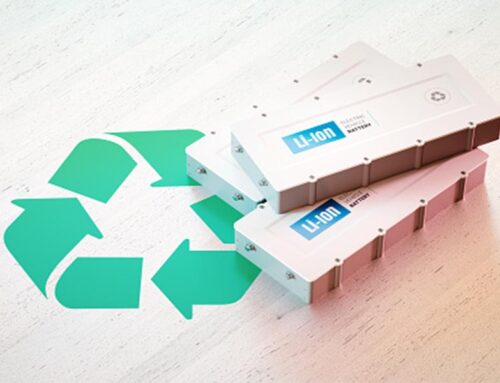
Lithium-ion Battery Recycler
The lithium-ion battery recycling market is quickly expanding as demand for lithium-ion batteries rises in a variety of applications such as electric cars, consumer devices, and renewable storage systems for energy. Recycling lithium-ion batteries helps to lessen the environmental effect of battery manufacture while also recovering precious elements such as cobalt, lithium, and nickel. The lithium-ion battery recycler like lithium-ion battery Recycler Delhi, and lithium-ion battery Recycler Gurgaon work on recycling the battery properly.
There are currently various ways for recycling lithium-ion batteries, comprising pyrometallurgical, mechanical, and hydrometallurgical processes. Mechanical operations entail dismantling the batteries into smaller parts, such as electrodes and separators, which may then get reused or sold to other industries. Pyrometallurgical procedures entail melting the battery components at high temperatures, whereas hydrometallurgical processes extract the metals using water solutions.
What is Lithium-ion Battery?
Lithium-ion batteries create the electricity required by our electronics by using lithium ions. It’s a lightweight metal with a high energy density. What exactly is energy density? The amount of energy held per unit volume of the battery gets defined as its energy density. This characteristic also allows the battery to be lighter.
Despite its many benefits, lithium cannot get used to power portable gadgets due to its metallic nature. As a result, the only answer is to switch to lithium-ions. Furthermore, they share the same features. The primary distinction between the two is that one is metallic and the other is non-metallic, making them suitable for a variety of applications.
How does a Lithium-ion battery work?
Batteries, as we all know, gets made up of cells, and each cell is of three parts: an anode or positive electrode, a cathode or negative electrode, and the liquid electrolytes. The lithium-ion battery’s anode gets built of carbon, while the cathode gets formed of Cobalt oxide or another metal oxide. To link these two electrodes, a simple salt solution, commonly known as a liquid electrolyte containing lithium-ion, would get utilized.
Once the lithium-ion batteries in your computer or other device get powered, the positive charge lithium ions flow through the electrolyte towards the positive electrode. Electrons, on the other hand, go from the positive to the negative electrode. While charging the lithium-ion batteries, the exact reverse occurs.
Lithium-ion Battery Recycling
The industry for lithium-ion battery recycling gets predicted to increase dramatically in the future years as electric vehicles become more popular and battery disposal rules become more stringent. Many countries throughout the world have created battery recycling objectives, which will assist to raise demand for recycling services. The lithium-ion battery recycler is responsible for the proper recycling of the batteries.
Nevertheless, lithium-ion battery recycling continues to confront various obstacles, including high recycling costs, a lack of industry standards, and the need for more modern technologies to increase the efficiency and value of recycling operations. As lithium-ion batteries are becoming more popular, recycling firms must create more ecological, practical, and cost-effective recycling technologies to fulfill rising demand.
Overall, as the requirement for lithium-ion batteries grows in various applications, the lithium-ion battery recycling industry has a substantial opportunity for growth. As laws tighten, implementing sustainable and cost-effective recycling technologies will be critical to industrial success.
Conclusion:
Lithium-ion batteries power a variety of consumer gadgets, including earphones, computers, mobile phones, and more. They can also get recharged up to 100 times and are quite stable.
The government and regulatory organizations are supporting lithium-ion battery recycling by giving financial and non-financial assistance to recycling enterprises, which is a significant growth element in the industry.
Ultimately, the lithium-ion battery recycling industry is getting pushed by expanding demand for electric vehicles, tougher battery disposal rules, and rising raw material costs. With increased awareness of the benefits of recycling and developments in recycling technologies, the lithium-ion battery recycling industry is likely to expand in the coming years.

